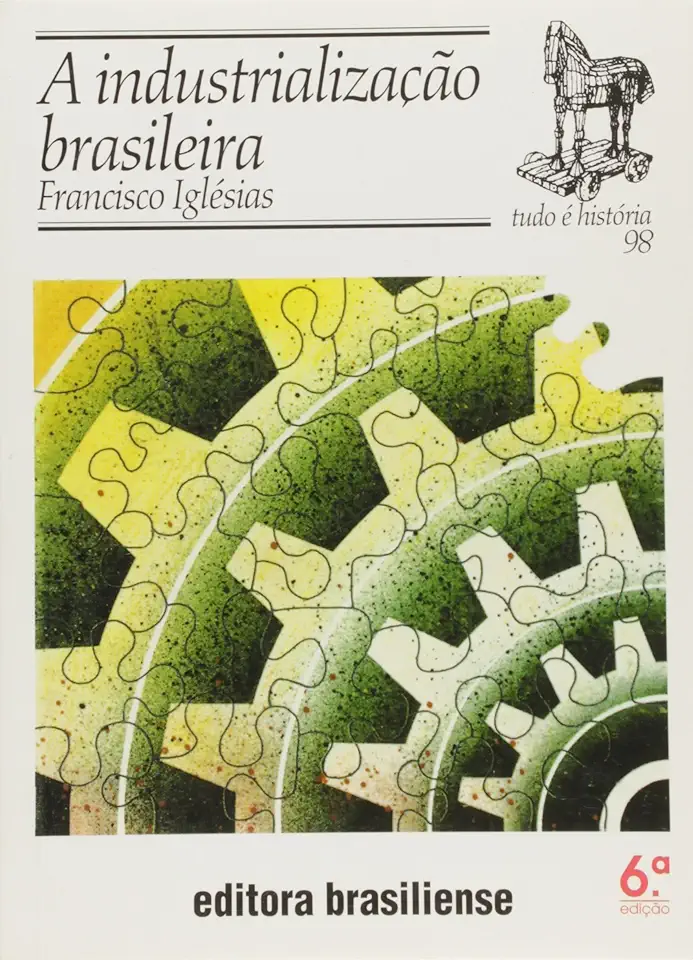
The Brazilian Industrialization - Francisco Iglésias
The Brazilian Industrialization: A History of Economic Development
By Francisco Iglésias
Introduction
In his book, "The Brazilian Industrialization", Francisco Iglésias provides a comprehensive and insightful history of Brazil's economic development, focusing on the country's industrialization process. Iglésias argues that Brazil's industrialization was a complex and multifaceted process, driven by a combination of internal and external factors. He examines the role of government policies, international trade, and technological change in shaping Brazil's industrial development, and he highlights the challenges and opportunities that the country faced along the way.
The Early Years of Industrialization
Brazil's industrialization began in the late 19th century, with the establishment of textile and food processing industries. These industries were largely import-substitution industries, meaning that they were created to produce goods that were previously imported from abroad. The government played a key role in promoting industrialization during this period, providing financial incentives and protective tariffs to domestic industries.
The Rise of Heavy Industry
In the early 20th century, Brazil's industrialization process accelerated, with the rise of heavy industry. This was due in part to the country's abundant natural resources, such as iron ore, coal, and petroleum. The government also played a key role in promoting heavy industry, through the creation of state-owned enterprises and the provision of subsidies.
The Impact of World War II
World War II had a significant impact on Brazil's industrialization process. The war disrupted international trade, which led to a decline in imports and an increase in demand for domestic goods. This stimulated the growth of Brazil's manufacturing sector, and it also led to the development of new industries, such as the automotive industry.
The Post-War Boom
After World War II, Brazil's industrialization process continued to accelerate. The country experienced a period of rapid economic growth, known as the "Brazilian Miracle". This growth was driven by a combination of factors, including increased foreign investment, the expansion of the domestic market, and the implementation of government policies that promoted industrialization.
The Challenges of Industrialization
Despite the successes of Brazil's industrialization process, the country also faced a number of challenges. These challenges included income inequality, environmental degradation, and political instability. Iglésias argues that these challenges were the result of the country's rapid and uneven industrialization process.
Conclusion
In conclusion, "The Brazilian Industrialization" provides a comprehensive and insightful history of Brazil's economic development. Iglésias argues that Brazil's industrialization was a complex and multifaceted process, driven by a combination of internal and external factors. He examines the role of government policies, international trade, and technological change in shaping Brazil's industrial development, and he highlights the challenges and opportunities that the country faced along the way. This book is a valuable resource for anyone interested in the history of Brazil's economic development and the challenges that the country faces today.
Why You Should Read This Book
If you are interested in the history of Brazil's economic development, then "The Brazilian Industrialization" is a must-read. This book provides a comprehensive and insightful analysis of the country's industrialization process, from its early beginnings in the late 19th century to the challenges that it faces today. Iglésias's book is well-researched and well-written, and it is a valuable resource for anyone interested in understanding Brazil's economic development.
Here are a few reasons why you should read this book:
- It provides a comprehensive and insightful history of Brazil's economic development.
- It examines the role of government policies, international trade, and technological change in shaping Brazil's industrial development.
- It highlights the challenges and opportunities that Brazil faced along the way.
- It is well-researched and well-written.
- It is a valuable resource for anyone interested in understanding Brazil's economic development.
Order your copy of "The Brazilian Industrialization" today!
Enjoyed the summary? Discover all the details and take your reading to the next level — [click here to view the book on Amazon!]